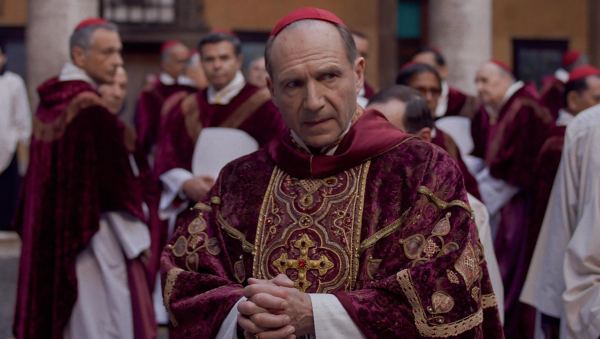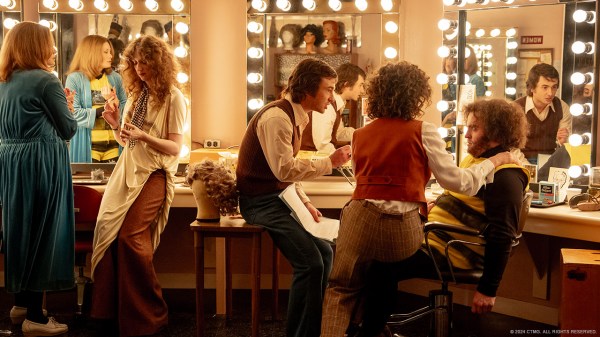When The Wizard of Oz premiered in 1939, no one could have guessed its cultural impact. A fun but largely trite kid’s movie sustained by stunning visuals and heart-wrenching music, it nonetheless became an instant box office success that sparked a plethora of spin-off media.
The most famous of these is the dark retelling of the Land of Oz found in Gregory Maguire’s 1995 novel Wicked, which has itself been transformed into a hit Broadway musical that is now hitting theaters as a feature film. But what might seem like merely a charming novel set to music or a rallying cry for individualism and realizing one’s identity actually turns into a deep exploration of evil—and how we should respond to it.
The early plot of the film centers on the trials and tribulations of the young “Wicked Witch of the West,” Elphaba. She’s born a vivid green color, and we soon learn that her yet unidentified magical abilities cause the world around her to behave oddly based on her emotional state. As a result of both of these factors, she is shunned by her family and neighbors. However, at university, Elphaba begins to find her way in the world. First, she discovers that her magical abilities are not a curse but instead make her something of a prodigy—in the process providing an avenue to have her skin “de-greenified” by the benevolent Wizard ruler of Oz. Elphaba also starts to make friends with the university’s more popular crowd.
But just as the young witch starts to feel comfortable in her own skin, she notices that some have it far worse than her. Through her favorite professor—an anthropomorphic goat—she learns that many of the talking animals who inhabit Oz have been gradually deprived of their rights and in some drastic cases their ability to speak (and thus reason like humans). So when Elphaba is given a chance by the Wizard of Oz to have her deepest wish granted, she discovers that, though she hates her skin color, she can live with it. Instead, her greatest wish is for the Wizard to stop whoever is oppressing the animals and restore to them their previous place in society.
These hopes are soon crushed when Elphaba learns the Wizard has all the magical skills of a common toad. What’s more, the Wizard reveals that he is the one who first started to oppress the animals. Why? Because he understood that to maintain his fraudulent grip on power, the people would need an enemy to unify against. Repulsed, Elphaba flees the Emerald City, vowing to tear the tyrannical Wizard from his throne.
The story here at first seems straightforward enough: A young girl with her own experience of oppression goes on to sympathize with a similarly maligned group and become a champion for the downtrodden. Through embracing her own individualist identity Elphabeba manages to become a warrior for justice. In some ways, that’s exactly the story Wicked tells. But beneath the surface, the story’s details make it all the richer. Instead of a film praising the beauty of individualism as a response to oppression, it is a story of how losing ourselves in concern for others is the true hallmark of goodness.
First, Elphaba’s journey from victim to activist is not the common modern narrative of someone who learns to speak up on behalf of her own oppression. In fact, Elphaba’s mistreatment appears almost like child’s play compared to what the animals experience at the hand of the Wizard. Elphaba is taunted and ostracized, but those in positions of authority quickly come to appreciate her obvious talents. Her simple kindness manages to leverage that talent to one of social superiority. This is not to imply that Elphaba’s life is not hard—it certainly is—but by the end of the movie she has overcome many of her personal hardships, even if she is left with the pain of being constantly “othered” throughout her life.
The remarkable thing about Elphaba is not that she manages to transform her mistreatment into her own social movement, but that she completely lets go of her own desires to instead give to others. The film is clear that Elphaba has dreamed of changing her skin color “since birth,” but she is willing to forget her own desires if it means helping those who are even less fortunate than her.
This selfless sacrifice stands in stark contrast to every single act of evil throughout the film. For instance, the Wizard’s grasp on power stems not so much from a selfless belief that he alone can help the people of Oz but from a pathological need to be praised and well-regarded. To maintain this popularity, the wizard reinvents several 20th-century devices for the otherwise antediluvian Oz and then resorts to scapegoating every problem he cannot solve upon the sentient animal population—and rationalizing it as providing the kind of unity any populace needs for prosperity.
The Wizard is only the most stark example of callous evil Wicked shows us. However, many other characters exhibit the kind of everyday cruelty that truly defines most of the evil we encounter in our lives. Glinda—the future “good witch”—is the perfect personification of this casual evil.
Wealthy, glamorous, and faultlessly polite, Galinda (as she is first known) manages to become the most popular girl at the small university with relative ease—yet she displays a constant level of cruelty toward anyone different from her. She consistently belittles her goat professor for mispronouncing her name and discussing topics that unsettle her rosy view of the world. She changes her name in his honor (because he could not pronounce it Guh-linda and simply called her Glinda), but only to try to save a crumbling romantic relationship with her more justice-oriented boyfriend. Most crucially, she is needlessly mean at the start of the film to Elphaba for being different, and she only begins to treat her kindly when Elphaba goes out of her way to help Glinda achieve her own dreams. Like the Wizard, Glinda seems oblivious to her social-climbing tendencies; she actually thinks of herself as the kindest person she knows.
Through the Wizard and Glinda, Wicked thus reveals some people’s frightening ability to deceive themselves. Neither of them pauses to think that they are potentially bad people. Instead, they rationalize each action as perfectly logical and just. This is the attitude of evil. Wickedness is neither senseless nor conscious—instead, it stems from selfish people rationalizing bad behavior that benefits them in some way.
Goodness, on the other hand, is the product of consciously disregarding oneself. We challenge evil not by embracing our identity (though accepting ourselves may be an important step along the way) but by tossing aside our own deepest needs and thinking of others. This is the remarkable thing about Elphaba: Even when she is confronted by injustice and the truly wicked, her own problems fade away in light of standing up for what is simply right.









Please note that we at The Dispatch hold ourselves, our work, and our commenters to a higher standard than other places on the internet. We welcome comments that foster genuine debate or discussion—including comments critical of us or our work—but responses that include ad hominem attacks on fellow Dispatch members or are intended to stoke fear and anger may be moderated.
With your membership, you only have the ability to comment on The Morning Dispatch articles. Consider upgrading to join the conversation everywhere.